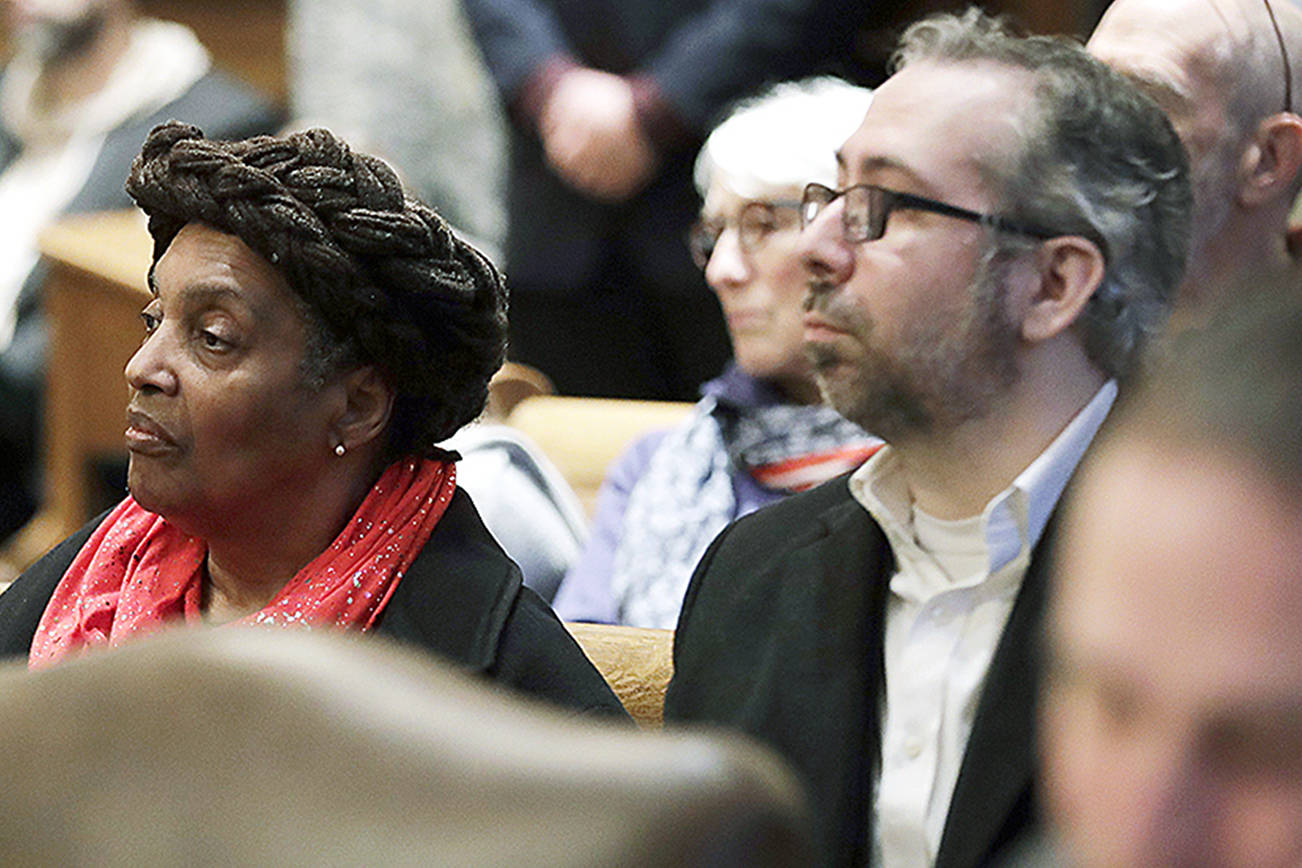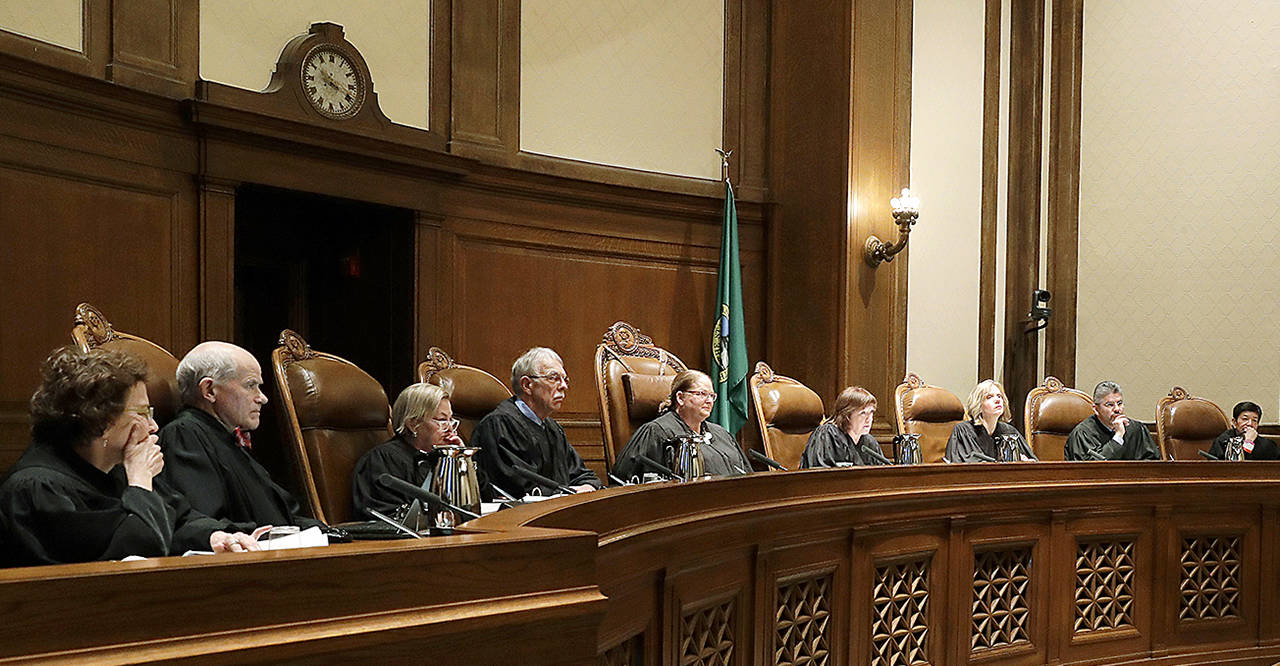OLYMPIA — There’s nothing unconstitutional about $1,000 fines the state imposed on the Democratic presidential electors who voted for someone other than Hillary Clinton in 2016, the state Supreme Court ruled Thursday.
In an 8-1 decision, the court rejected the argument of so-called “faithless electors” Bret Chiafalo of Everett, Esther John of Seattle, and Levi Guerra of Warden that the civil penalty infringed on their constitutional rights to free speech which allowed them to vote their conscience as members of the Electoral College.
Justice Barbara Madsen, writing for the majority, said the state is empowered under the U.S. Constitution not only to draw up the rules for elections, but also to determine how to enforce them.
“An elector acts under the authority of the State, and no First Amendment right is violated when a state imposes a fine based on an elector’s violation of his pledge,” Madsen wrote in the majority opinion.
Nothing in the Constitution “suggests that electors have discretion to cast their votes without limitation or restriction by the state Legislature,” she wrote.
In his three-page dissent, Justice Steven Gonzalez sided with the argument of electors.
“There is a meaningful difference between the power to appoint and the power to control,” he wrote. “The Constitution provides the State only with the power to appoint, leaving the electors with the discretion to vote their conscience. Therefore, the State cannot impose a civil penalty on electors who do not vote for the candidates nominated by their party.”
Chiafalo, Guerra and John did sign pledges to cast their votes for the party’s nominee, Clinton, if she won the popular vote in Washington, which she did.
But they didn’t keep their word. When the Electoral College met in December 2016, they backed former U.S. Secretary of State Colin Powell, a Republican they considered a better choice than Donald Trump.
What they did wasn’t a surprise. Chiafalo helped found Hamilton Electors which at the time was conducting a national campaign to derail Trump’s presidency by getting electors of both parties to break their pledges and vote for a different Republican to be the nation’s leader. If they could deny Trump a majority, the U.S. House of Representative would choose the president.
The plan failed. Washington Secretary of State Kim Wyman proceeded to impose fines of $1,000 on each elector for breaking their vow to honor the will of voters.
The trio have been fighting since.
“I’m not at all surprised,” Chiafalo said of the decision. “They put a lot of thought and time into the majority opinion. But I believe Justice Gonzalez understands the situation as we do. The next step I believe is the federal court system. This situation has to be decided by the Supreme Court.”
Fines won’t be a problem in future presidential elections. A new law passed this year eliminates them.
Instead if an elector breaks their pledge, they will be removed and an alternate elector appointed to take their place.
The law is worse because it takes away an elector’s right to vote, Chiafalo said, adding it could face challenge in the future.
Jerry Cornfield: 360-352-8623; jcornfield@herald net.com. Twitter: @dospueblos.









